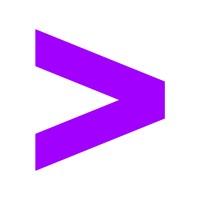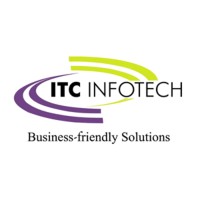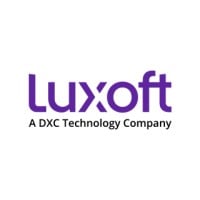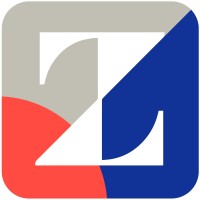Company Details
mastercard
42,954
2,111,072
5415
mastercard.com
580
MAS_1836809
Completed

Mastercard Company CyberSecurity Posture
mastercard.comMastercard powers economies and empowers people in 200+ countries and territories worldwide. Together with our customers, we’re building a sustainable economy where everyone can prosper. We support a wide range of digital payments choices, making transactions secure, simple, smart and accessible. Our technology and innovation, partnerships and networks combine to deliver a unique set of products and services that help people, businesses and governments realize their greatest potential.
Company Details
mastercard
42,954
2,111,072
5415
mastercard.com
580
MAS_1836809
Completed
Between 800 and 849

 Mastercard Global Score (TPRM)
Mastercard Global Score (TPRM)XXXX

Description: Mastercard disclosed a data breach involving customer data from the company's Priceless Specials loyalty program. The data was made available on the Internet, with customers' names, payment card numbers, email addresses, home addresses, phone numbers, gender, and dates of birth included in the leaked info. The incident was limited to the Specials program and the only payment card information leaked was the numbers of payment cards. After the data leak was discovered, Mastercard suspended the German Priceless Specials and took down its website, leaving up only a message that said this issue has no connection to MasterCard's payment network.
Description: During the COVID-19 pandemic, Belgium experienced a significant increase in cybercrime, with businesses facing up to three times more cyberattacks compared to the pre-pandemic period. Mastercard's analysis revealed that malware, ransomware, and social engineering were the predominant forms of attack targeting Belgian businesses, aiming primarily to extract information. Notably, almost 1,000 Belgian businesses suffered cyberattacks in 2021, highlighting the critical importance of cybersecurity measures. The banking sector, however, demonstrated robustness with a higher cybersecurity score than the global and European averages, attributed to heavy investment in infrastructure and artificial intelligence tools for improved protection. This scenario underscores the relentless threat of cybercrime and the vital need for comprehensive cybersecurity strategies to safeguard businesses from potential attacks.


No incidents recorded for Mastercard in 2025.
No incidents recorded for Mastercard in 2025.
No incidents recorded for Mastercard in 2025.
Mastercard cyber incidents detection timeline including parent company and subsidiaries

Mastercard powers economies and empowers people in 200+ countries and territories worldwide. Together with our customers, we’re building a sustainable economy where everyone can prosper. We support a wide range of digital payments choices, making transactions secure, simple, smart and accessible. Our technology and innovation, partnerships and networks combine to deliver a unique set of products and services that help people, businesses and governments realize their greatest potential.

Insights you can act on to achieve trusted outcomes. We are insights-driven and outcomes-focused to help accelerate returns on your investments. Across 21 industry sectors and 400 locations worldwide, we provide comprehensive, scalable and sustainable IT and business consulting services that are in

Accenture is a global professional services company with leading capabilities in digital, cloud and security. Combining unmatched experience and specialized skills across more than 40 industries, we offer Strategy and Consulting, Interactive, Technology and Operations services — all powered by the w

ITC Infotech is a global technology solution and services leader providing business-friendly solutions, that enable future-readiness for clients. We seamlessly bring together digital expertise, strong industry-specific alliances, and deep domain expertise from ITC Group businesses. Our solutions and

TIVIT is a Brazil-based multinational company that offers enterprise-level digital solutions, and operates in ten countries in Latin America. We help our clients develop their businesses by offering industry-leading digital solutions divided into four main categories: Digital Business, Cloud Solutio

Luxoft, a DXC Technology Company (NYSE: DXC), is a digital strategy and software engineering firm providing bespoke technology solutions that drive business change for customers the world over. Acquired by U.S. company DXC Technology in 2019, Luxoft is a global operation in 44 cities and 21 countrie

Atos Group is a global leader in digital transformation with c. 70,000 employees and annual revenue of c. € 10 billion, operating in 67 countries under two brands — Atos for services and Eviden for products. European number one in cybersecurity, cloud and high-performance computing, Atos Group is c

At Hexaware, we're not just a global technology and business process services company; we're a community of 31,600+ Hexawarians dedicated to one singular purpose: creating smiles through the power of great people and technology. With a presence in 58 offices across 28 countries, we empower enterpris
Artificial Intelligence. Automation. Cloud engineering. Advanced analytics. For business leaders, these are key factors of success. For us, they’re our core expertise. At Sutherland, we are a leading global business and digital transformation partner. Our services span a diversified range of categ

Zensar stands out as a premier technology consulting and services company, embracing an ‘experience-led everything’ philosophy. We are creators, thinkers, and problem solvers passionate about designing digital experiences that are engineered into scale-ready products, services, and solutions to deli
.png)
BAKU, Azerbaijan, November 20. Mastercard intends to strengthen its cybersecurity cooperation in Azerbaijan not only with banks but also...
One in eight cyberattacks on Azerbaijan directly targets the banking sector, and this trend fully coincides with the global trend,...
This week in cybersecurity from the editors at Cybercrime Magazine.
The Government of Ukraine and Mastercard, a global technology company in payments industry, have signed a Memorandum of Understanding to...
Because it sits at the intersection of technology, trust and commerce, Mastercard can anticipate the threats before they emerge and ensure the...
Mastercard has introduced Mastercard Threat Intelligence, the first threat intelligence solution designed specifically for payment systems.
A white paper series based on Mastercard's global small business cybersecurity research reveals the impact of cyber threats and practical...
Announcing Threat Intelligence at Money 20/20 US, Mastercard showcases its latest technology in preventing fraud, combining insights from...
Several interesting Android malware families, UN cybercrime treaty, criminal complaint against Clearview AI in Europe.

Explore insights on cybersecurity incidents, risk posture, and Rankiteo's assessments.
The official website of Mastercard is http://www.mastercard.com.
According to Rankiteo, Mastercard’s AI-generated cybersecurity score is 821, reflecting their Good security posture.
According to Rankiteo, Mastercard currently holds 0 security badges, indicating that no recognized compliance certifications are currently verified for the organization.
According to Rankiteo, Mastercard is not certified under SOC 2 Type 1.
According to Rankiteo, Mastercard does not hold a SOC 2 Type 2 certification.
According to Rankiteo, Mastercard is not listed as GDPR compliant.
According to Rankiteo, Mastercard does not currently maintain PCI DSS compliance.
According to Rankiteo, Mastercard is not compliant with HIPAA regulations.
According to Rankiteo,Mastercard is not certified under ISO 27001, indicating the absence of a formally recognized information security management framework.
Mastercard operates primarily in the IT Services and IT Consulting industry.
Mastercard employs approximately 42,954 people worldwide.
Mastercard presently has no subsidiaries across any sectors.
Mastercard’s official LinkedIn profile has approximately 2,111,072 followers.
Mastercard is classified under the NAICS code 5415, which corresponds to Computer Systems Design and Related Services.
No, Mastercard does not have a profile on Crunchbase.
Yes, Mastercard maintains an official LinkedIn profile, which is actively utilized for branding and talent engagement, which can be accessed here: https://www.linkedin.com/company/mastercard.
As of November 27, 2025, Rankiteo reports that Mastercard has experienced 2 cybersecurity incidents.
Mastercard has an estimated 36,262 peer or competitor companies worldwide.
Incident Types: The types of cybersecurity incidents that have occurred include Ransomware and Data Leak.
Detection and Response: The company detects and responds to cybersecurity incidents through an containment measures with suspended the german priceless specials, containment measures with took down its website..
Title: Mastercard Data Breach
Description: Mastercard disclosed a data breach involving customer data from the company's Priceless Specials loyalty program. The data was made available on the Internet, with customers' names, payment card numbers, email addresses, home addresses, phone numbers, gender, and dates of birth included in the leaked info. The incident was limited to the Specials program and the only payment card information leaked was the numbers of payment cards. After the data leak was discovered, Mastercard suspended the German Priceless Specials and took down its website, leaving up only a message that said this issue has no connection to MasterCard's payment network.
Type: Data Breach
Title: Increased Cyberattacks on Belgian Businesses During COVID-19 Pandemic
Description: During the COVID-19 pandemic, Belgium experienced a significant increase in cybercrime, with businesses facing up to three times more cyberattacks compared to the pre-pandemic period. Mastercard's analysis revealed that malware, ransomware, and social engineering were the predominant forms of attack targeting Belgian businesses, aiming primarily to extract information. Notably, almost 1,000 Belgian businesses suffered cyberattacks in 2021, highlighting the critical importance of cybersecurity measures. The banking sector, however, demonstrated robustness with a higher cybersecurity score than the global and European averages, attributed to heavy investment in infrastructure and artificial intelligence tools for improved protection. This scenario underscores the relentless threat of cybercrime and the vital need for comprehensive cybersecurity strategies to safeguard businesses from potential attacks.
Type: malware
Attack Vector: malwareransomwaresocial engineering
Motivation: Information Extraction
Common Attack Types: The most common types of attacks the company has faced is Data Leak.

Data Compromised: Customer names, Payment card numbers, Email addresses, Home addresses, Phone numbers, Gender, Dates of birth
Commonly Compromised Data Types: The types of data most commonly compromised in incidents are Customer Names, Payment Card Numbers, Email Addresses, Home Addresses, Phone Numbers, Gender, Dates Of Birth and .

Entity Name: Mastercard
Entity Type: Financial Services
Industry: Financial Services

Containment Measures: Suspended the German Priceless SpecialsTook down its website

Type of Data Compromised: Customer names, Payment card numbers, Email addresses, Home addresses, Phone numbers, Gender, Dates of birth
Personally Identifiable Information: customer namesemail addresseshome addressesphone numbersgenderdates of birth
Handling of PII Incidents: The company handles incidents involving personally identifiable information (PII) through by suspended the german priceless specials, took down its website and .

Recommendations: Heavy investment in infrastructure, Use of artificial intelligence tools for improved protectionHeavy investment in infrastructure, Use of artificial intelligence tools for improved protection

Source: Mastercard's analysis
Additional Resources: Stakeholders can find additional resources on cybersecurity best practices at and Source: Mastercard's analysis.
Most Significant Data Compromised: The most significant data compromised in an incident were customer names, payment card numbers, email addresses, home addresses, phone numbers, gender, dates of birth and .
Containment Measures in Most Recent Incident: The containment measures taken in the most recent incident was Suspended the German Priceless SpecialsTook down its website.
Most Sensitive Data Compromised: The most sensitive data compromised in a breach were dates of birth, gender, payment card numbers, email addresses, home addresses, phone numbers and customer names.
Most Significant Recommendation Implemented: The most significant recommendation implemented to improve cybersecurity was Use of artificial intelligence tools for improved protection and Heavy investment in infrastructure.
Most Recent Source: The most recent source of information about an incident is Mastercard's analysis.
.png)
Angular is a development platform for building mobile and desktop web applications using TypeScript/JavaScript and other languages. Prior to versions 19.2.16, 20.3.14, and 21.0.1, there is a XSRF token leakage via protocol-relative URLs in angular HTTP clients. The vulnerability is a Credential Leak by App Logic that leads to the unauthorized disclosure of the Cross-Site Request Forgery (XSRF) token to an attacker-controlled domain. Angular's HttpClient has a built-in XSRF protection mechanism that works by checking if a request URL starts with a protocol (http:// or https://) to determine if it is cross-origin. If the URL starts with protocol-relative URL (//), it is incorrectly treated as a same-origin request, and the XSRF token is automatically added to the X-XSRF-TOKEN header. This issue has been patched in versions 19.2.16, 20.3.14, and 21.0.1. A workaround for this issue involves avoiding using protocol-relative URLs (URLs starting with //) in HttpClient requests. All backend communication URLs should be hardcoded as relative paths (starting with a single /) or fully qualified, trusted absolute URLs.
Forge (also called `node-forge`) is a native implementation of Transport Layer Security in JavaScript. An Uncontrolled Recursion vulnerability in node-forge versions 1.3.1 and below enables remote, unauthenticated attackers to craft deep ASN.1 structures that trigger unbounded recursive parsing. This leads to a Denial-of-Service (DoS) via stack exhaustion when parsing untrusted DER inputs. This issue has been patched in version 1.3.2.
Forge (also called `node-forge`) is a native implementation of Transport Layer Security in JavaScript. An Integer Overflow vulnerability in node-forge versions 1.3.1 and below enables remote, unauthenticated attackers to craft ASN.1 structures containing OIDs with oversized arcs. These arcs may be decoded as smaller, trusted OIDs due to 32-bit bitwise truncation, enabling the bypass of downstream OID-based security decisions. This issue has been patched in version 1.3.2.
Suricata is a network IDS, IPS and NSM engine developed by the OISF (Open Information Security Foundation) and the Suricata community. Prior to versions 7.0.13 and 8.0.2, working with large buffers in Lua scripts can lead to a stack overflow. Users of Lua rules and output scripts may be affected when working with large buffers. This includes a rule passing a large buffer to a Lua script. This issue has been patched in versions 7.0.13 and 8.0.2. A workaround for this issue involves disabling Lua rules and output scripts, or making sure limits, such as stream.depth.reassembly and HTTP response body limits (response-body-limit), are set to less than half the stack size.
Suricata is a network IDS, IPS and NSM engine developed by the OISF (Open Information Security Foundation) and the Suricata community. In versions from 8.0.0 to before 8.0.2, a NULL dereference can occur when the entropy keyword is used in conjunction with base64_data. This issue has been patched in version 8.0.2. A workaround involves disabling rules that use entropy in conjunction with base64_data.

Get company history
















Every week, Rankiteo analyzes billions of signals to give organizations a sharper, faster view of emerging risks. With deeper, more actionable intelligence at their fingertips, security teams can outpace threat actors, respond instantly to Zero-Day attacks, and dramatically shrink their risk exposure window.
Identify exposed access points, detect misconfigured SSL certificates, and uncover vulnerabilities across the network infrastructure.
Gain visibility into the software components used within an organization to detect vulnerabilities, manage risk, and ensure supply chain security.
Monitor and manage all IT assets and their configurations to ensure accurate, real-time visibility across the company's technology environment.
Leverage real-time insights on active threats, malware campaigns, and emerging vulnerabilities to proactively defend against evolving cyberattacks.




